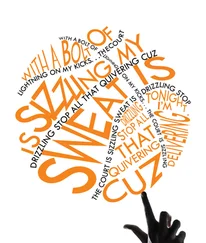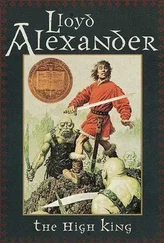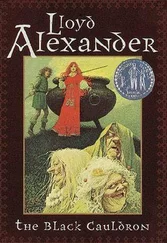“Little bitch!” he yelled. “You’ll get yours.” He stumbled backward away from me.
I took a deep breath, moved into the canteen and looked for a familiar face. I saw Cook and Frau Junge, who sat at a table on the far side of the room. I pushed past the revelers, many of whom could barely stand up after drinking numerous libations. Expensive chocolates and pastries sat on the tables as well. Someone had raided what remained of Hitler’s palatable luxuries. I joined the two women at the table. Cook offered me a glass of champagne. I shook my head.
“Who knows when you may have this opportunity again?” she said. “I wouldn’t turn it down.”
“No,” I said. “I want my wits about me.”
“Why?” Frau Junge asked. “The end has come. It’s only a matter of time before we’re taken out of here—dead or alive.”
“I have unfinished business.”
They both looked at me as if I had said something heretical. Cook sighed and said, “We all do.”
A nurse and a soldier danced past us, knocking into our table. We held on to its edge with our hands to prevent it from tipping over.
“Drunken fools,” Frau Junge said. “They have no respect for the Führer.” She took a sip of champagne. “Who would want to leave this life in such a state?”
Magda Goebbels appeared at the far end of the canteen, attired in a white dressing gown. She glared at the crowd and shouted, “Shame. Shame on all of you. The Führer can’t sleep. Neither can my children. Have some decency.”
The revelers laughed and continued their party. She turned away, disgusted by the display. Soon Hitler’s valet appeared and repeated what Frau Goebbels had said. He begged the crowd to quiet down so the Führer could sleep. His pleas were ignored as well.
Cook leaned toward Frau Junge and said, “We have been loyal and true to the Führer. Let’s drink to his health.” They clinked their glasses and then looked at me because I refused to join in.
I got up from the table. “I’ve had enough of this spectacle.” I left them and walked back to my room. Sleep did not come because the party continued until five in the morning. It broke up when the shelling became so intense no one could hear the music. The earth moaned and shook around us like an erupting volcano.
* * *
About two hours later, Eva came to my quarters. She wore a pretty blue dress, the color of her mood. “Come, walk with me,” she said.
No one could rest because of the explosions, so I decided to join her. By now my face had become familiar to the SS, and because I was walking with Eva, no guards questioned us. We walked through the Führer Bunker toward the exit where Blondi and the puppies had been killed.
“I want to see light,” she said. “These days have been hell, but it’ll soon be over.” She turned into the passageway leading to the exit staircase, shook her head and laughed like the “old” Eva, the one at the Berghof, her voice bubbling like a brook. “Actually, it’s a great relief to know it’s going to be over soon.” Eva climbed the stairs slowly, savoring each step. I followed.
She pushed open the door, which could only be opened from the inside. The shelling had let up for a moment. A nightmarish vision of scorched earth lay in front of us. Fractured trees littered the ground. Even though it was April 30, no leaves shaded the Chancellery garden. Instead, a pitted landscape of shell holes and destruction lay in front of us. The New Chancellery was in ruin, its grand structure obliterated by bombs and shells. Huge stone blocks lay in tumbled piles at its base. A thick pall of smoke hung in the air, giving the morning sky a hellish red-orange hue. Fires burned so close to us, we could barely make out the sun’s disk through the noxious clouds.
Eva stepped out. I didn’t stop her. “Look, Magda!” she exclaimed proudly. “I’m outside and the Russians don’t know it.” At that moment, a shell streaked over the bunker and landed a few hundred meters away. The blast rocked Eva off her feet. I called for her to come back inside.
She did a pirouette around a crater. “Death can wait a few minutes.” She pointed to the tortured earth. “That hole may be where we are buried. It’s a bit in the open. I hope they do a good job of concealing our bodies.”
I looked at her incredulously and knew she was losing her mind. She was talking nonsense. I stood near the door to the desolate garden. “Come back inside, Eva. It’s too dangerous.” Another artillery shell streaked overhead, but struck farther away this time.
She hung her head and walked slowly back to me. “I guess we must—but let me linger a bit at the door.”
I stood behind her as she craned her neck and viewed the destruction. “I have a favor to ask you,” she said, her face turned away from me. I drew close to her side, so close I could see the sparkle in her eyes as she talked.
“Adolf and I are to die when the time is right,” she said. “Our bodies are to be burned. The men will take care of that.” She looked at me and smiled. “You’ve been so loyal to us and to the Führer. I want you to make sure we die. I want it to be quick. Adolf agrees there should be someone in the room with us to make sure our orders are carried out. So, dear Magda, you must end the reign of the Third Reich. You must make certain we are dead.”
I grabbed the railing to steady myself, I was so stunned by her words. Her request repulsed me, yet gave me a thrill of satisfaction. Hitler would take the easy way out and not answer for his crimes. By committing suicide, he could let blame fall on his generals, the soldiers and the German people for his defeat. He would die a martyr’s death, at least in his eyes. And Eva, who concerned herself with nothing except her blind devotion to the Führer, would join him in their death pact.
Smoke swirled toward the door and the shelling suddenly picked up again. Eva slammed it shut, plunging us both into the bunker’s netherworld. Explosions again rocked the Chancellery garden. One of the blasts shook us violently on the steps.
I turned, ready to descend back into the bunker. Hitler stood at the bottom, attired in a red dressing gown and slippers. He looked up at us without a smile, his face garish and sagging under the glare of a lightbulb. Perhaps he wanted a look at the sun himself. Without acknowledging us, he turned and disappeared down the passageway.
As I watched him, I knew fate had decided the course of my life.
I would kill Adolf Hitler.
Eva came to me about two the next afternoon. Her husband, the secretaries and Cook were having a meal. She had no appetite, she confessed. Her dogs had been killed.
Not long after, we joined staff members in the large conference room. Eva introduced me to Hitler’s pilot, Hans Baur, several generals and Otto Günsche, a member of the Liebstan-darte and a personal adjutant, who was at Hitler’s side when the bomb exploded at the Wolf’s Lair. No one recognized me as the wife of Karl Weber, or, if they did, they didn’t care. Goebbels and his wife were in the room as well as Bormann. Much the same happened as the day before, although Hitler did not dispense cyanide.
While these farewells were going on, Eva pulled me aside and led me to the sitting room between Hitler’s study and bedroom. Here, Eva said, they would end their brief marriage. On a table lay two cyanide capsules and two pistols. An open bottle of champagne and two glasses also sat upon it.
“Stay here,” she said. “We’ll be back soon.”
I sat on the couch, running my fingers over its flowered pattern. As the minutes dragged by, I got up and looked at the paintings in the study and sitting room. Eva had left the connecting door ajar. The room had been rifled through and most of Hitler’s papers and books were missing. I assumed they had been destroyed by a staff member. I returned to the sitting room and sat again on the couch. I picked up one of the pistols and studied it. I read the engraving on the weapon, a Walther 7.65mm. I assumed it was loaded. The cyanide in their copper capsules sat nearby.
Читать дальше












